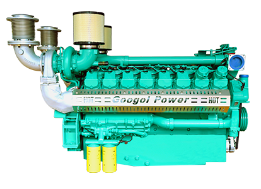Diesel Engine
Generator Set
The structural design of fuel injectors in electronic fuel injection diesel engines has various special features, which enable them to play a key role in precise control of fuel injection.
Firstly, the nozzle diameter of electronic fuel injection diesel engines is very small and requires extremely high precision. Generally speaking, the diameter of the nozzle may be between tens of micrometers and hundreds of micrometers. This small diameter design allows fuel to be injected at extremely high pressure, forming mist like fuel particles. Foggy fuel can mix more thoroughly with air, ensuring efficient combustion of fuel in the cylinder. For example, in some advanced electronic fuel injection diesel engine fuel injectors, the machining accuracy of the injection holes can reach micrometer level, ensuring the uniformity and stability of fuel injection.

Secondly, there is a fine needle valve structure inside the fuel injector of the electronic fuel injection diesel engine. Needle valves are controlled by electromagnetic or piezoelectric driving methods. When receiving a signal from the electronic control unit (ECU), the needle valve can quickly and accurately open and close. This needle valve opens and closes very quickly, enabling the start and stop of fuel injection in a very short amount of time. For example, the needle valve opening time of some fuel injectors can be controlled within a few milliseconds or even shorter, thereby achieving precise control over fuel injection quantity and timing.
Furthermore, the head of the fuel injector is usually made of special heat-resistant and wear-resistant materials. Due to the high temperature, high pressure, and fuel erosion that fuel injectors must withstand during operation, they need to have good resistance to high temperatures and wear. For example, using alloy materials to manufacture the nozzle head can effectively prevent deformation, corrosion, and other problems that may occur during long-term use, ensuring the stability of the nozzle's service life and performance.
In addition, in order to better control the shape of fuel injection, the outlet shape of the fuel injector has also been carefully designed. Some fuel injectors have a porous outlet, which allows fuel to be injected in multiple directions and form a more ideal mixture with air. Moreover, the internal flow channel of the fuel injector is designed to facilitate stable fuel flow, reducing pressure fluctuations and unevenness during the injection process. This special combination of internal and external structural design enables the fuel injectors of electronic fuel injection diesel engines to meet efficient and precise fuel injection requirements.